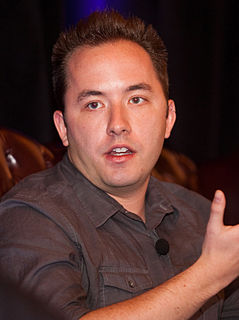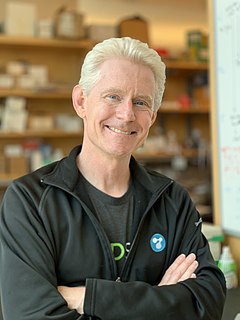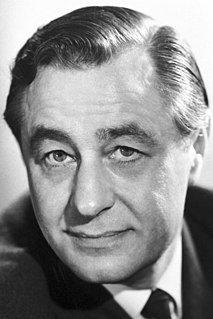A Quote by Linus Pauling
During the time that [Karl] Landsteiner gave me an education in the field of imununology, I discovered that he and I were thinking about the serologic problem in very different ways. He would ask, What do these experiments force us to believe about the nature of the world? I would ask, What is the most. simple and general picture of the world that we can formulate that is not ruled by these experiments? I realized that medical and biological investigators were not attacking their problems the same way that theoretical physicists do, the way I had been in the habit of doing.
Quote Topics
About
Ask
Attacking
Been
Believe
Biological
Different
Different Way
Different Ways
Discovered
Doing
Education
Experiments
Field
Force
Gave
General
Habit
Had
I Realized
Investigators
Karl
Me
Medical
Most
Nature
Picture
Problem
Problems
Realized
Ruled
Same
Simple
Theoretical
Thinking
Time
Us
Very
Way
Ways
Were
World
Would
Related Quotes
...the proposed air force and army experiments were designed so that many animals would suffer and die without any certainty that this suffering and death would save a single human life or benefit humans in any way at all; but the same can be said of millions of their experiments performed each year in the United States alone.
I would go with my husband to the tailors where he gets his shirts made, and I would watch the bespoke process. I would ask them, "Would you be able to make that for me?" And they would always say, "Well, yes, but no." They were very French about it. I decided I would just do it for myself. And I started doing that. Then other people would notice, and want it. So I started doing things for friends, little pieces, and my own line grew that way.
I was obsessed with the scientific instruments people were building and all the weird experiments they were doing. I did actually wind up working in some of that, but there were whole sections I'd written about these instruments that ultimately had to be abandoned when I realized that the book really was about Margaret Cavendish. I couldn't justify using all of them.
By the time 1967 had rolled around, general relativity had been relegated to mathematics departments... in most people's minds, it bore no relation to physics. And that was mostly because experiments to prove it were so hard to do - all these effects that Einstein's theory had predicted were infinitesimally small.
If you ask me what I believe in today, I believe in feminism. I believe that all human beings are equal. I believe that no one has the right to authority over anyone else. Feminism has to do with everything in the world, a vision of how the world can be. I have great doubts about Utopias, but I just keep on thinking there is a better way to live than the way we live now.
D'you ever wonder what it would be like if our positions were reversed?' I ask. At Jack's puzzled look I continue. 'If we whites were in charge instead of you Crosses?' 'Can't say it's ever crossed my mind,' Jack shrugs. 'I used to think about it a lot,' I sigh. 'Dreams of living in a world with no more discrimination, no more prejudice, a fair police force, an equal justice system, equality of education, equality of life, a level playing field.
I would be lying, however, if I claimed that I could always formulate worthwhile hypotheses on the basis of my theoretical framework. Sometimes there were no reflexive processes to be found; sometimes I failed to find them; and, what was the most painful of all, sometimes I got them wrong. One way or another, I often invested without a worthwhile hypothesis and my activities were not very different from a random walk.
I think it's science and physics are just starting to learn from all these experiments. These experiments have been carried out hundreds and hundreds of times in all sorts of ways that no physicist really questions the end point. I think that these experiments are very clearly telling us that consciousness is limitless and the ultimate reality.
It is very different to make a practical system and to introduce it. A few experiments in the laboratory would prove the practicability of system long before it could be brought into general use. You can take a pipe and put a little coal in it, close it up, heat it and light the gas that comes out of the stem, but that is not introducing gas lighting. I'll bet that if it were discovered to-morrow in New York that gas could be made out of coal it would be at least five years before the system would be in general use.
When I was first thinking about what would become Venture for America, I was trying to figure out how to solve a problem - that our top young people were being driven to roles that did not, to me, address the needs of our time. That VFA would be a non-profit just seemed like the most efficient way to solve the problem.





































